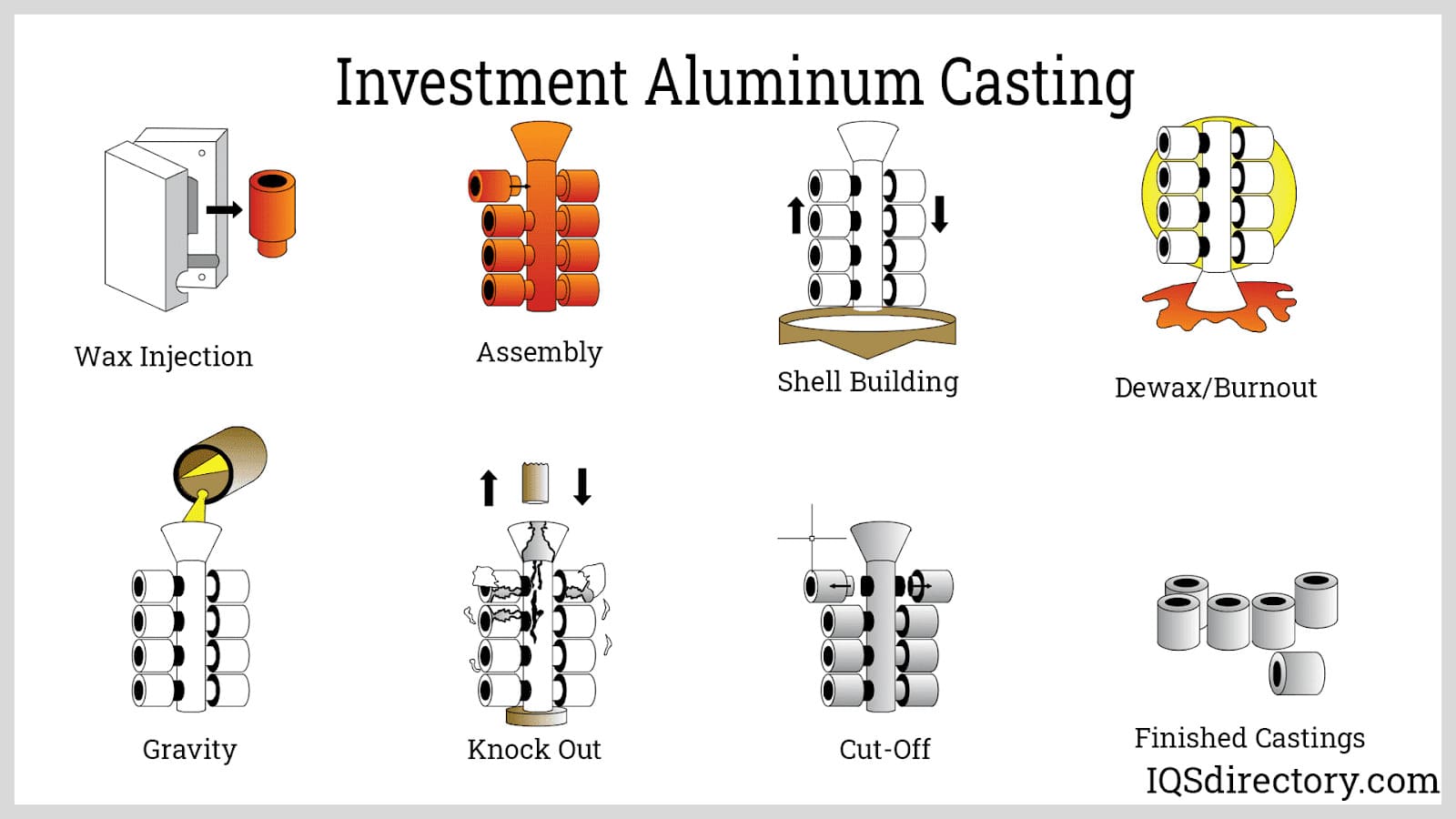The 8-Minute Rule for Stahl Specialty Company
Table of ContentsGetting The Stahl Specialty Company To WorkNot known Details About Stahl Specialty Company Facts About Stahl Specialty Company RevealedThings about Stahl Specialty CompanyThe Ultimate Guide To Stahl Specialty Company
The subtle difference depends on the chemical content. Chemical Comparison of Cast Aluminum Alloys Silicon advertises castability by minimizing the alloy's melting temperature and enhancing fluidness throughout casting. It plays an essential role in allowing complex molds to be filled precisely. In addition, silicon adds to the alloy's strength and use resistance, making it valuable in applications where durability is essential, such as auto components and engine elements.It likewise improves the machinability of the alloy, making it simpler to process right into finished items. In this way, iron contributes to the total workability of aluminum alloys.
Manganese adds to the toughness of aluminum alloys and improves workability. It is typically utilized in wrought light weight aluminum products like sheets, extrusions, and accounts. The presence of manganese aids in the alloy's formability and resistance to cracking throughout construction processes. Magnesium is a light-weight component that supplies strength and effect resistance to aluminum alloys.
It permits the manufacturing of lightweight elements with outstanding mechanical residential or commercial properties. Zinc enhances the castability of light weight aluminum alloys and helps regulate the solidification process throughout casting. It improves the alloy's toughness and firmness. It is usually found in applications where complex shapes and fine details are necessary, such as attractive castings and specific vehicle components.
See This Report about Stahl Specialty Company
Since aluminum-silicon alloys have good casting buildings, high gas homes, straightforward processes, and superb corrosion resistance, aluminum-silicon alloys are most generally utilized in the die-casting market in your home and abroad. At the exact same time, aluminum-silicon alloys are also reasonably early and extensively identified alloys developed and used in die-casting. After continuous research study and enhancement, a lot of the current worldwide mainstream aluminum-silicon alloys have actually been settled and are nothing even more than A356, A360, A380, ADC12, B390, and A413.
The primary thermal conductivity, tensile strength, yield stamina, and elongation vary. Select ideal raw materials according to the efficiency of the target product created. Among the above alloys, A356 has the highest possible thermal conductivity, and A380 and ADC12 have the most affordable. The tensile limit is the contrary. A360 has the very best return stamina and the greatest prolongation price.

Examine This Report about Stahl Specialty Company
In precision casting, 6063 is well-suited for applications where detailed geometries and top notch surface area finishes are vital. Instances include telecommunication units, where the alloy's premium formability enables for streamlined and aesthetically pleasing layouts while preserving structural stability. Likewise, in the Lights Solutions sector, precision-cast 6063 components create stylish and efficient illumination components that require complex shapes and excellent thermal efficiency.
(https://www.topsitessearch.com/stahlspecialty.com/)
The A360 shows superior elongation, making it suitable for complicated and thin-walled elements. In precision casting applications, A360 is fit for sectors such as Consumer Electronics, Telecommunication, and Power Devices.

In precision casting, light weight aluminum 413 shines in the Consumer Electronic Devices and Power Tools sectors. This alloy's remarkable deterioration resistance makes it an outstanding option for outdoor applications, guaranteeing durable, sturdy products in the mentioned markets.
A Biased View of Stahl Specialty Company
When you have made a decision that the light weight aluminum pass away casting process appropriates for your project, a critical next step is picking the most proper alloy. The light weight aluminum alloy you choose will substantially impact both the casting procedure and the residential or commercial properties of the last item. As a result of this, you should make your choice very carefully and take an educated approach.
Determining the most appropriate light weight aluminum alloy for your application will indicate considering a vast array of qualities. These relative alloy characteristics comply with the North American Die Casting Organization's standards, and we've split them into 2 groups. Aluminum Casting. The first category addresses alloy attributes that affect the production procedure. The second covers characteristics influencing the homes of the end product.
The alloy you pick for die casting directly impacts a number of aspects of the spreading process, like how easy the alloy is to collaborate with and if it is vulnerable to casting flaws. Hot breaking, likewise called solidification cracking, is a common die casting defect for light weight aluminum alloys that can lead to interior or surface-level rips or splits.
Rumored Buzz on Stahl Specialty Company
Certain aluminum alloys are a lot more vulnerable to hot splitting than others, and your choice should consider this. Another common defect located in the die spreading of aluminum is die soldering, which is when the cast sticks to the die walls and makes ejection hard. It can harm both the cast and the die, so you ought to try to find alloys with high anti-soldering properties.
Corrosion resistance, which is already a significant feature of light weight aluminum, can vary substantially from alloy to alloy and is a crucial characteristic to take into consideration depending on the environmental conditions your product will be exposed to. Use resistance is another property typically looked for in light weight aluminum products and can set apart some alloys.